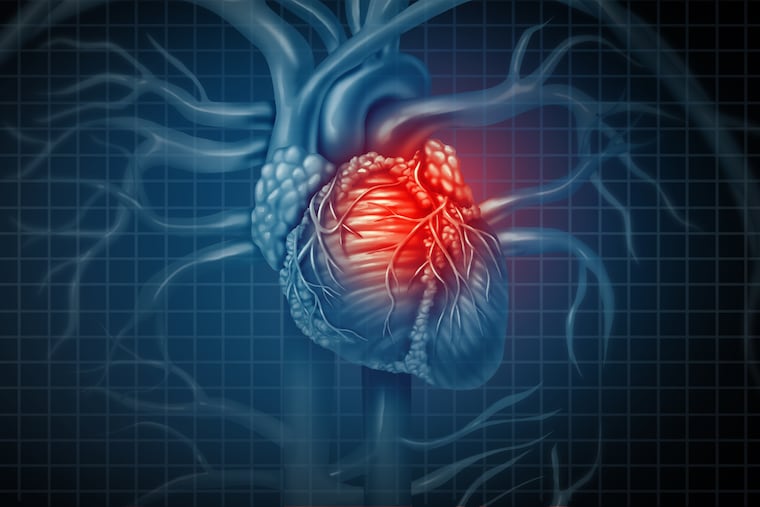Q&A: How does stress affect my heart?
Stress is essential for survival because it helps the body prepare to face danger and cope with difficulty. However, stress also can have dangerous short-term and long-term effects on the heart.

Stress is the body’s natural response to perceived threats. During stressful times, the body releases cortisol and catecholamines, sometimes called “stress hormones,” which provide an energy boost that fuels muscles to respond to potentially threatening situations.
Stress is essential for survival because it helps the body prepare to face danger and cope with difficulty. However, stress also can have dangerous short-term and long-term effects on the heart.
Acute stress
Acute stress is the most common form of stress and results from a specific event or situation, usually surprising in nature. In most cases, acute stress reactions help the body handle unexpected moments. But in extreme cases, acute stress can lead to broken heart syndrome, a condition in which intense emotional or physical stress can induce quick and severe heart muscle weakness. The potentially life-threatening condition occurs when people experience an intense surge of stress hormones in response to emotionally trying events. The most common events that cause broken heart syndrome include:
Bad news. A loved one’s death, a breakup or the loss of a job are common life changes that provide sudden and unexpected stress.
Surprises. Even good moments, such as surprise parties or winning a contest, can lead to intense emotional reactions that could “stun” the heart.
Health conditions. Asthma attacks, severe infections, and surgeries are among the health conditions that can lead to acute stress.
During highly stressful moments, the body releases stress hormones that can temporarily reduce the effectiveness of the heart’s pumping action or cause the heart to pump in an erratic, inconsistent pattern.
Broken heart syndrome may be misdiagnosed as a heart attack because the two conditions share similar symptoms and test results. Common symptoms of broken heart syndrome are chest pain, shortness of breath, and cardiogenic shock, which is the insufficient pumping of blood to the heart to meet the body’s needs.
Always seek emergency care when these symptoms arise because there is no way to determine the cause without proper diagnosis. Most people fully recover from broken heart syndrome, but the condition can be fatal if medical treatment is not sought quickly.
While broken heart syndrome can occur in anyone, it tends to occur most frequently in middle aged and elderly women. There are no known treatments for preventing broken heart syndrome, but relaxation techniques and healthy lifestyle choices can help reduce stress and improve overall heart health.
Chronic stress
Chronic stress is caused by consistent exposure to situations or environments that put extended pressure on the body over months and even years. Potential causes of chronic stress, among others, include:
Financial difficulties
Relationship problems
Pressure at work
Major life changes
Consistently high levels of cortisol due to chronic stress can damage the heart. Elevated stress hormone levels have been linked to high cholesterol, blood pressure and blood sugar, which increase the risk for heart disease.
Chronic stress, over time, also can lead to depression. Depression triggers stress hormones, which can increase inflammation and arterial plaque buildup over time, increasing the risk for heart disease. Depressed individuals also may find it difficult to make positive lifestyle changes and seek out treatment to improve their mental and physical health.
The first step to overcoming depression and chronic stress is to understand that seeking help is not a sign of weakness. Mental health is necessary to address first, and treatment can motivate people to make healthy choices — such as exercising and maintaining a healthy diet — that benefit their heart and overall wellbeing.
If you are experiencing acute or chronic stress, talk to your physician.
Eddy Mizrahi is the medical director of noninvasive cardiology at Mercy Catholic Medical Center-Mercy Philadelphia Campus.